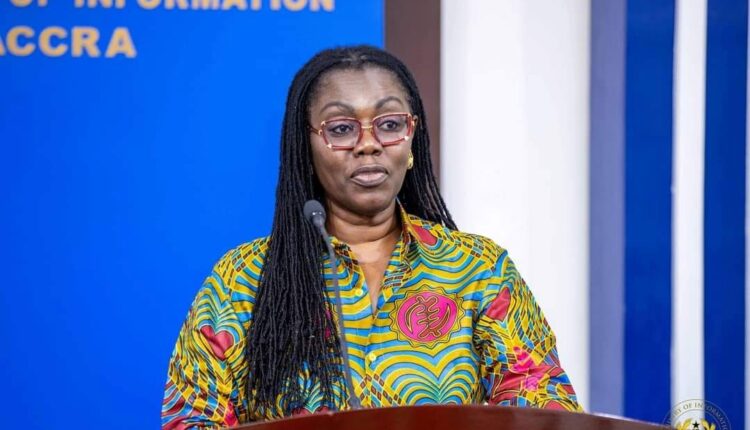The Minister for Communication and Digitalisation, Mrs. Ursula Owusu-Ekuful, has officially launched the National Cyber Security Awareness Month (NCSAM) for this year, urging the media to utilize its vast platforms and networks to heighten awareness about the risks associated with cyberspace.
This year’s NCSAM is themed “Combating Misinformation/Disinformation in a Digitally Resilient Democracy; Our Collective Responsibility” and aims to spotlight the widespread issue of misinformation and disinformation, particularly their potential to undermine electoral integrity, peace, and security.
Organized under the auspices of the Ministry of Communication and Digitalisation, the event is designed to foster collaboration and coordination among stakeholders, developing comprehensive strategies to curb the spread of false information online.
Speaking at the launch, held at the Ministry of Information in Accra, Mrs. Owusu-Ekuful expressed optimism that Ghanaians who use the internet will take this opportunity to educate themselves on safe online practices while also promoting digital safety for others.
“As we embark on this year’s NCSAM, it is imperative that we unite to make this initiative a resounding success. We urge identifiable groups, Civil Society Organisations, the Media, and the general public to actively engage in NCSAM,” she emphasized.
The Minister acknowledged the significant economic and societal benefits that digitalisation brings to the global population, including Ghanaians. However, she also cautioned that these technologies come with inherent risks, which cybercriminals could exploit, potentially harming individuals, businesses, societies, and nations as a whole.
“Studies have shown that our growing dependence on the Internet has introduced more risks and vulnerabilities, creating new opportunities for criminal activity,” she noted.
Mrs. Owusu-Ekuful further highlighted concerns about the proliferation of misinformation and disinformation, which could destabilize the country’s democratic processes and governance, eroding public trust in institutions.
She clarified that misinformation involves the sharing of false or misleading information without malicious intent, whereas disinformation is the deliberate creation and dissemination of false information intended to deceive. Both, she warned, pose significant risks, especially as the nation approaches a critical electoral period in December.
“It is essential for all stakeholders to actively engage in safeguarding the integrity of the country’s information ecosystems,” she asserted.
The Minister emphasized that a resilient digital democracy is founded on the principles of inclusivity, accuracy, transparency, and accountability, where citizens, governments, media, technology developers, and civil society organisations collaborate to protect democratic processes.
She also pointed out that collective efforts in combating disinformation are vital, particularly given how rapidly false information can spread through digital channels, reaching millions within seconds.
“In this regard, the Cyber Security Authority (CSA) will be engaging faith-based organisations in a ‘door-to-door’ campaign to educate the public on issues related to misinformation, disinformation, and other safe cyber practices,” she revealed.





Comments are closed.